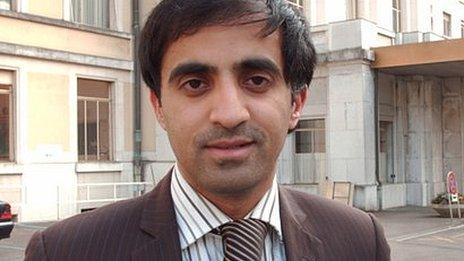Why Three Girls is one of TV's toughest watches
- Published
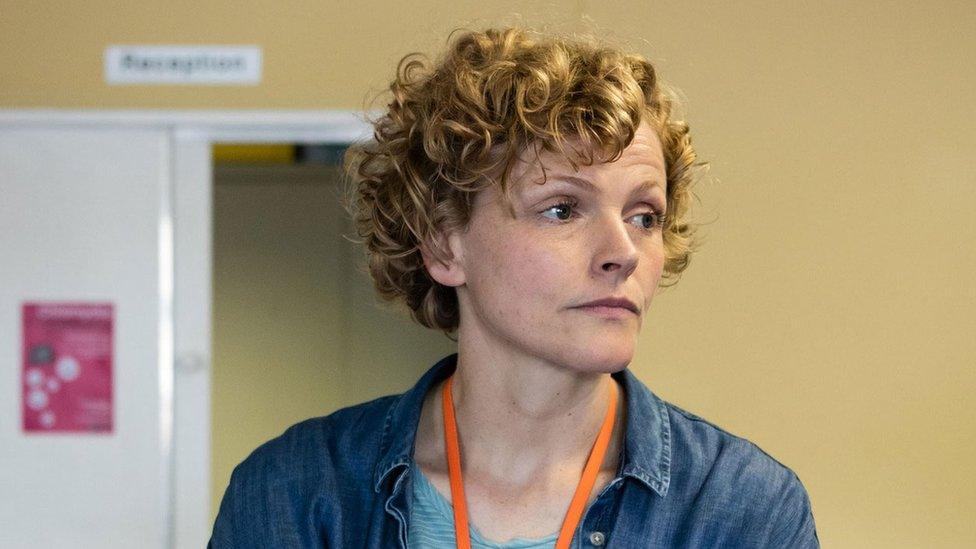
Maxine Peake as sexual health worker Sara Rowbotham in Three Girls
"It was a story that needed to be told," says Maxine Peake, emphatically.
"It's a story about a swathe of society that has been ignored and bullied."
The actress is referring to Three Girls, a new BBC One drama based on the true stories of victims of grooming and sexual abuse in Rochdale.
Peake plays Sara Rowbotham, the sexual health worker who realised the girls were being abused and reported it to the authorities - and was repeatedly ignored.
"The powers that be weren't encouraging her, they were shutting doors, they were telling her to be quiet, they weren't interested," says Peake, who met the real-life Sara in preparation for the role.
"Nobody seemed interested in helping these girls who were in desperate situations. These were really vulnerable young women - the lack of care for them I found mind-blowing."
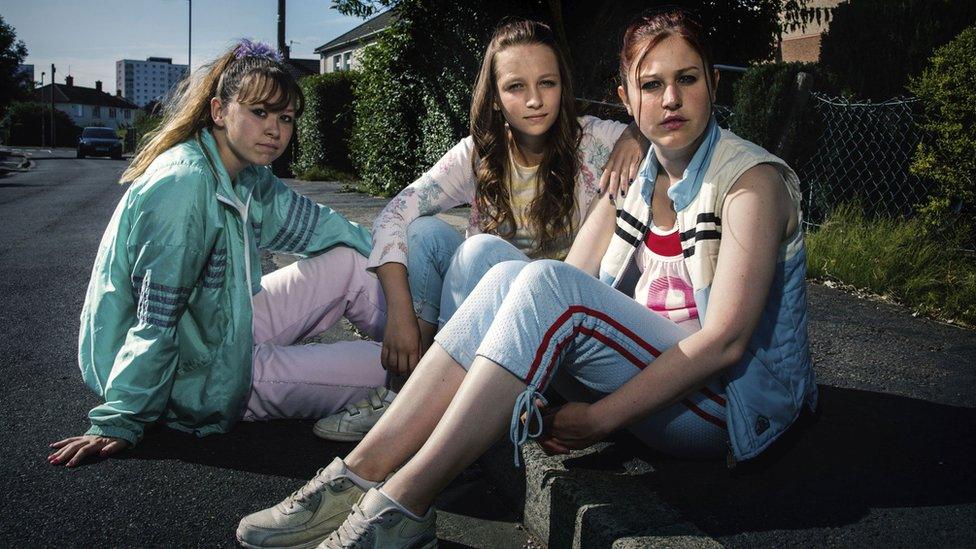
Three Girls: Ruby (Liv Hill), Holly (Molly Windsor, and Amber (Ria Zmitrowicz)
As the title suggests, Three Girls focuses on the young victims who were groomed in Rochdale in the five years between 2008 and 2012, for which nine men were convicted and sentenced.
The judge at the time, Gerald Clifton, said the men - eight of Pakistani origin and one from Afghanistan - treated the girls "as though they were worthless and beyond respect".
He said: "One of the factors leading to that was the fact that they were not part of your community or religion.
"Some of you, when arrested, said it (the prosecution) was triggered by race. That is nonsense. What triggered this prosecution was your lust and greed."
The drama - which will be shown over three nights next week - has been made with the full co-operation of the victims and their families.
It comes as ITV soap Coronation Street also has a running storyline about child grooming involving 16-year-old Bethany Platt and a "boyfriend" in his mid-30s.
'Passed around like a ball'
Three Girls isn't an easy watch, although it is never prurient or sensational.
Two episodes were shown at a press screening in London this week. The mood afterwards was subdued.
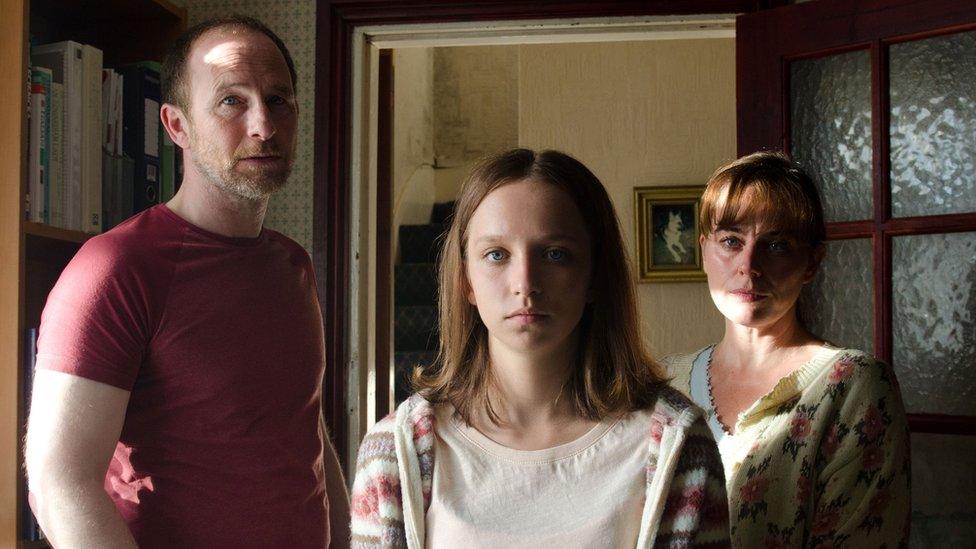
Holly (Molly Windsor) with her parents Jim (Paul Kaye) and Julie (Jill Halfpenny)
The first episode follows schoolgirl Holly (an astonishing performance from Molly Windsor), recently moved to Rochdale with her family, who is is keen to make friends and fit in.
It isn't long before she is hanging out with a group of girls at the back of a local kebab shop being given free food and endless bottles of vodka by older men.
And then the demands for sex begin.
One chilling line that sticks in the memory is when one victim describes how girls would be driven to a flat full of men who "passed us around like a ball".
Writer Nicole Taylor started work on the project in December 2013 by getting to know the victims and their families so she could understand what had happened in detail.
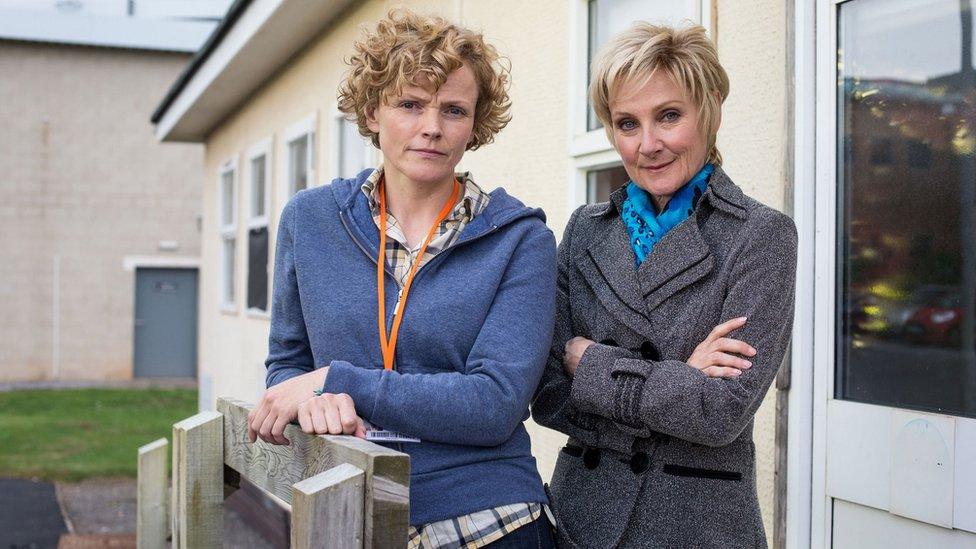
Lesley Sharp (right) plays detective Maggie Oliver who, with Sara Rowbotham, helps bring the case to court
Speaking after the screening, Peake says that telling the story in a drama helps engage a bigger audience.
"Sometimes people can be slightly cautious about documentaries, maybe, so it's getting into more homes.
"This is still going on," she adds. "It's not over, but steps have been made and things are getting better."
Executive producer Sue Hogg says she had become interested in making the drama after she heard an interview with one of the victims after the trial.
"She was only 19 then, and she was so dignified and so strong in that interview - and then you begin to ask the questions 'why was this allowed to go on for so long?' and 'why were the girls not listened to?'"
She hopes that the drama will help the public understand how grooming works and will help prevent future cases.
Peake says that, despite the harrowing subject matter, acting in the drama was a "positive experience".
"It wasn't a depressing set to be on - it felt full of hope," she says.
"Being part of this story, you felt you were doing something that had hope for the next generation of girls that hopefully will be protected from this.
"And the girls who have been through it, and are now young women, will be able to move on with their lives."
This story was first published on 9 May 2017.

Follow us on Facebook, external, on Twitter @BBCNewsEnts, external, or on Instagram at bbcnewsents, external. If you have a story suggestion email entertainment.news@bbc.co.uk, external.
- Published8 May 2012
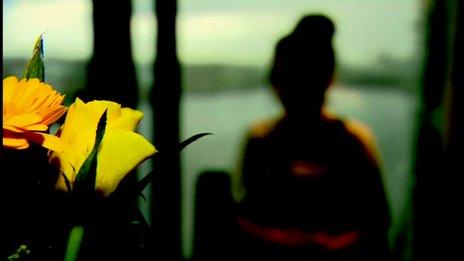
- Published8 May 2012
